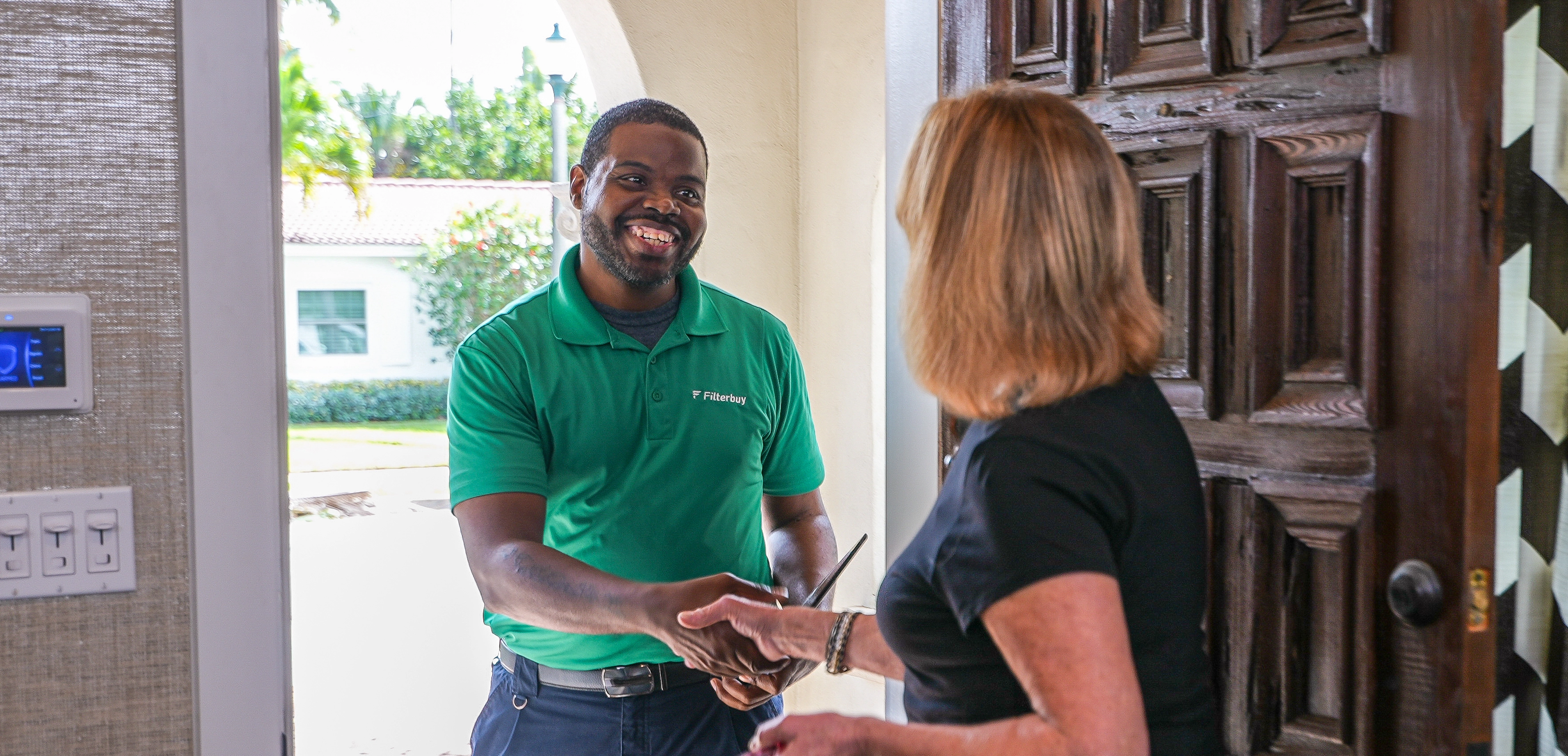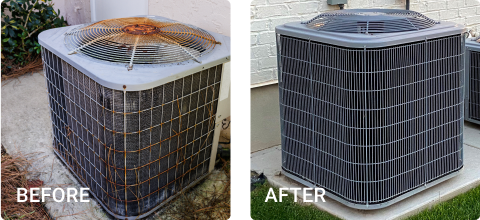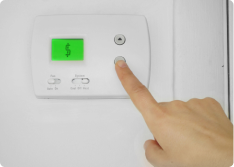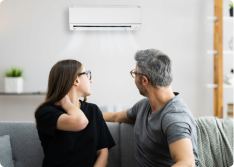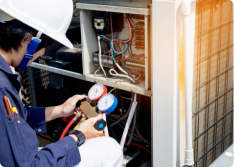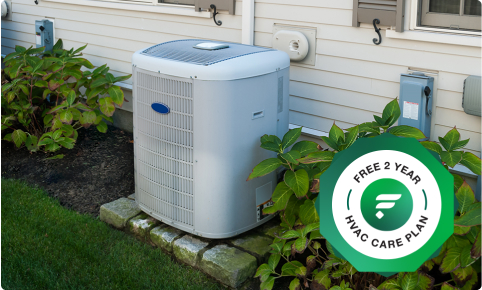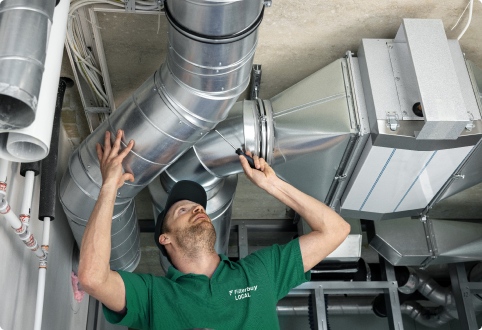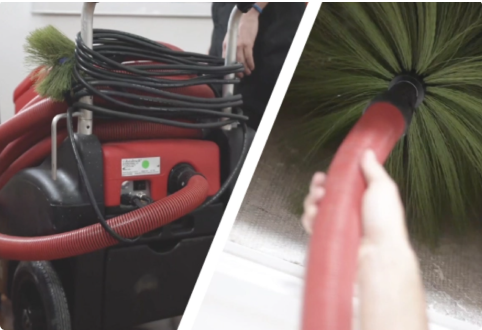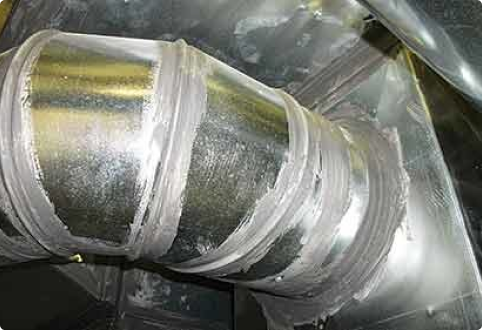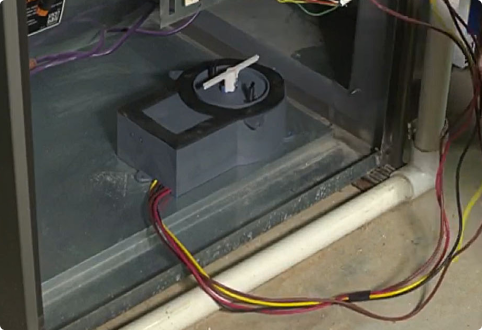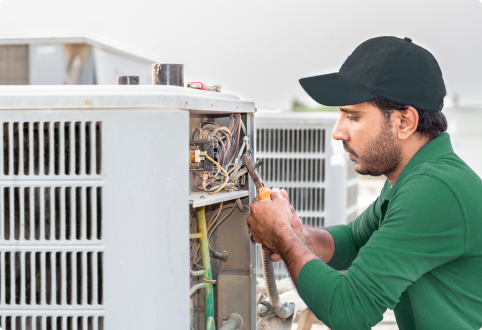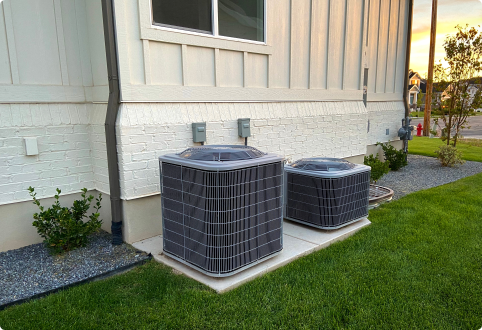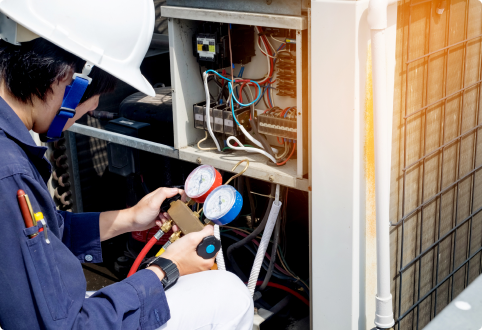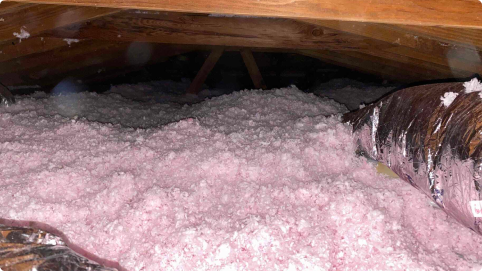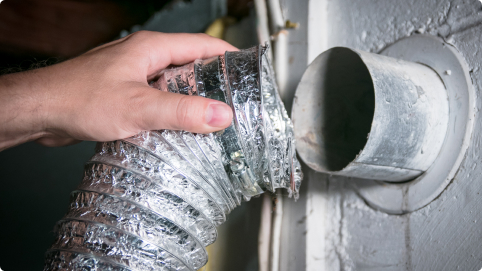Welcome to Filterbuy HVAC Solutions, the best HVAC system installation service company proudly serving in and near the greater Stuart, FL area. Please let us know how we can help solve your Stuart HVAC system installation needs with professional, affordable, and fast residential and commercial HVAC services by getting a free online quote or by giving our friendly HVAC specialists a call. We look forward to hearing from you!
HVAC Installation Stuart FL
The process of installation is an integral part of any HVAC system. It requires specialized knowledge and expertise to ensure that the system works as intended, with minimal disruption to daily life.
This article will explore the various aspects of HVAC installation in Stuart FL, focusing on the best practices for selecting a contractor and ensuring a successful outcome.
The first step in any HVAC installation project is determining what type of equipment should be installed. Depending on the size and complexity of the building or home, different types of systems may be required.
Additionally, certain local regulations must be taken into account when making this decision. Once these factors have been identified, it becomes easier to narrow down potential contractors who can provide quality service and reliable results.
Determining The Necessary Equipment
According to the U.S. Department of Energy, heating and cooling in a home account for approximately 40% of its total energy costs. Thus, when it comes to HVAC installation in Stuart FL, having the right equipment is essential to ensure that one can enjoy maximum comfort while also saving money on utility bills over time.
When considering which type of HVAC system is right for any particular situation, several factors must be taken into consideration such as the size of the space, climate conditions, budget constraints, and other related issues.
An experienced professional installer should be able to assess these factors accurately and recommend the best solution accordingly; this brings up the important issue of finding a qualified HVAC contractor who has experience with installations in the local area.
Finding A Qualified HVAC Contractor
When embarking on an HVAC installation project, it is essential to hire an experienced and knowledgeable contractor. It is important to vet them thoroughly as they will be responsible for the quality of work being done in your home or business.
It is advised that potential contractors are:
* Verified - Check their credentials, certifications, and insurance and ensure that any necessary permits have been obtained.
* Experienced - Ask about past projects and inquire if there have been any customer complaints.
* Reputable - Research online reviews from previous customers and ask around locally for references.
By taking these steps you can make sure that the contractor you choose has the appropriate skills to handle your HVAC installation needs with confidence.
Once you've made your choice, understanding different types of HVAC systems becomes the next step in executing your project successfully.
Types Of HVAC Systems
Installing a reliable HVAC system requires the expertise of a qualified contractor. As such, it is important to find a certified and experienced professional who can provide quality services to ensure efficient operation, maximize energy savings, and improve indoor air quality.
Similarly, selecting the right type of HVAC system for your home or business is just as crucial as finding an experienced technician. There are various types of heating and cooling systems available on the market today, each with its unique features and benefits.
A split system consists of an outdoor compressor unit connected to one or more indoor air handlers that circulate conditioned air throughout the property. Alternatively, packaged systems combine all components into one unit located outside the premises.
Heat pumps offer both cooling and heating capabilities by transferring heat from inside to outside during summer months and vice versa in wintertime. Finally, ductless mini-splits provide targeted comfort control via multiple independent wall-mounted units connected to an external condenser.
Regardless of which option you choose for your space in Stuart FL, it is essential to be aware of local building codes and regulations before installation to ensure compliance with industry standards.
Local Building Codes And Regulations
When installing an HVAC system, it is important to ensure compliance with local building codes and regulations. This may include obtaining the appropriate permits for installation or meeting other specific requirements set by the jurisdiction.
It is recommended that contractors check in with their local permitting agency before beginning work to ensure all needed documentation has been obtained and that all applicable laws have been met. Failure to comply with local regulations can result in costly fines or even halt construction.
Contractors should also be aware of any changes to laws over time as jurisdictions regularly update their rules and standards. Keeping abreast of these changes ensures that the contractor remains compliant while providing quality service.
To maintain a high standard, it is necessary to move on to ensure the quality of installation.
Ensuring The Quality Of Installation
As a well-constructed building, an HVAC installation must be seamless and impeccable. It is like the mortar between bricks – strong enough to hold them together but invisible as it does so. Quality control in this process is paramount for both the safety and comfort of those within the space being heated or cooled.
All components of the system must be tested after installation to ensure proper functioning, from electrical systems to ductwork sealing.
Additionally, external factors such as noise levels should also be monitored during testing periods. Once quality assurance has been achieved, understanding maintenance requirements becomes the next step in ensuring optimal performance long term.
Understanding System Maintenance Requirements
Maintaining an HVAC system is imperative to ensure the efficient and long-lasting operation of the equipment. The maintenance requirements depend on various factors, such as the size of the unit, type of climate control required, level of humidity desired, types of filters used, and other components that are necessary for optimal performance.
Regular inspection and cleaning are essential to maintain proper airflow throughout a home or business facility. The most common maintenance tasks involve replacing worn-out parts, inspecting ductwork for leaks and obstructions, measuring refrigerant levels, changing air filters regularly, checking all electrical connections for tightness, lubricating moving parts if needed, testing safety controls like pressure switches and resetting settings when needed.
In addition to these regular preventive maintenance checks, it is important to schedule annual tune-ups with experienced technicians who know different brands and models available in Stuart FL. Doing so will help identify problems before they become serious issues leading to expensive repairs down the line.
Taking proactive steps towards maintaining one's HVAC system can save energy costs while ensuring comfort year-round. With the evaluation of cost being the next step in the installation process, understanding how much needs to be invested into upkeep provides further clarity on the overall expense associated with ownership.
Evaluating The Cost Of Installation
Before procuring a new HVAC system for the Stuart, Florida area, it is prudent to evaluate the cost of installation. Costly components such as labor and material comprise the total expenditure associated with this type of upgrade.
Careful consideration must be taken to ensure that budgeting expectations are met.
Cost assessment can come from multiple sources including research into industry standards, obtaining quotes from certified contractors, or even consulting third parties who specialize in providing estimates for projects like these. This allows property owners to make informed decisions about how much they should expect to pay for their desired HVAC setup.
Ensuring proper insulation will allow homeowners to maximize energy efficiency while keeping costs low over time.
Ensuring Proper Insulation
The installation of proper insulation is a critical step in the process. Without it, an HVAC system will not be able to properly regulate temperature and humidity levels within the property.
Here are some key issues that must be addressed about insulation:
- Ensuring adequate thermal resistance (R-value) for the climate;
- Sealing all seams and gaps around fixtures, pipes, vents, and other openings;
- Inspect existing insulation material for any damage or signs of wear.
To ensure maximum efficiency from the chosen HVAC system, these steps must be taken beforehand to achieve optimal performance from the unit.
Properly insulating both walls and ceilings can help reduce energy costs by preventing air leakage between conditioned spaces and unconditioned areas like attics or crawl spaces. As such, it is important to evaluate the available options carefully before selecting the most suitable option for each area of your home or business premises.
With this done, we can then move on to selecting the appropriate size system for a successful installation.
Selecting The Appropriate Size System
Insulation plays a vital role in the efficiency of an HVAC system, thus it is important to ensure that all insulation measures are properly implemented.
While selecting the appropriate size and type of system for installation, one must consider factors such as the square footage of the building, the total number of occupants, local climate conditions, and any special features desired by the user.
When determining the correct size and capacity of a unit required for an HVAC installation project, it is always recommended to consult with a professional who can provide expert advice on what type and size would be most suitable for your specific needs.
Professional contractors have access to many resources regarding sizing requirements which will enable them to make informed recommendations about what equipment should be installed.
Furthermore, they also understand how to best configure air ducts so that the newly installed system operates at peak efficiency.
Understanding these benefits associated with professional installation ensures greater value and longer-lasting performance from your investments.
As such, taking these considerations into account when selecting an appropriate HVAC system is essential for optimal results.
With this knowledge in hand, you can move forward confidently toward understanding the various benefits offered by professional installation services.
Understanding The Benefits Of Professional Installation
Installing an HVAC system requires professional expertise and experience to ensure the unit is installed correctly and efficiently. Professional installation involves both measuring the space for proper sizing of the unit, as well as ensuring that all connections are properly secured to avoid potential damages or malfunctions due to inadequate workmanship.
Additionally, a professional installer will be able to assess any existing components already present in the area such as ducts and vents, further maximizing efficiency by making sure they are cleared of debris or obstructions.
Furthermore, trained professionals can use specific tools designed specifically for HVAC installations which enhances accuracy and precision during the process. They also have access to resources like manufacturer’s documentation, energy efficiency programs, and other specialized items needed for the effective functioning of the system after installation.
In addition, professional installers often provide warranties on parts used in their work as well as perform maintenance checks afterward, providing peace of mind concerning safety and performance.
Frequently Asked Questions
What Type Of HVAC System Should I Choose For My Home In Stuart FL?
Choosing an HVAC system for a home can be a daunting task.
The type of system that should be chosen depends on the size and layout of the home in question as well as local climate and environmental considerations.
Additionally, the budget will play a role in determining what type of system is appropriate.
A professional assessment by an HVAC specialist may be necessary to ensure the proper selection and installation of the desired unit.
How Often Should I Have My HVAC System Serviced?
Regular servicing of an HVAC system is essential to maintain proper functioning and can prevent costly repairs in the future.
For optimal performance, it is recommended that homeowners have their systems serviced at least twice a year; once during springtime before the summer months when air conditioning usage increases and again in late fall before the winter season begins.
Servicing should include checking for any worn or faulty parts, cleaning components such as filters and coils, and ensuring the correct operation of all safety controls.
What Is The Average Cost Of HVAC Installation In Stuart FL?
HVAC installation costs can be significant, and not all prices are equal. The average cost of HVAC installation in Stuart FL is among the highest in the country, with a wide range of quotes depending on the complexity of each project.
Different factors such as brand name products, labor rates, and the size of the property can have an enormous impact on how much money needs to be allocated for these installations. It's important to research thoroughly before making any decisions about your HVAC system.
How Can I Be Sure I'm Getting A Good Quality Installation Job?
When considering a quality installation job, it is important to evaluate the experience and expertise of the technician doing the work.
Researching reviews from past customers can provide insight into their level of skill in tackling HVAC projects.
It is also beneficial to ask for references and check credentials such as certifications or licensing.
Additionally, ensuring that all proper safety measures are taken during installation will help maintain the optimal functionality of your system for years to come.
What Are The Benefits Of Hiring A Professional To Install My HVAC System?
When it comes to installing an HVAC system, the benefits of employing a professional are undeniable. According to statistics from The International Association of Certified Home Inspectors (InterNACHI), over 50% of all homeowners now choose to use licensed professionals for their projects.
Professional HVAC installation experts have the experience and skills needed to handle complex tasks such as ductwork layout and electrical wiring safely and efficiently. They also possess specialized knowledge regarding parts compatibility, which can help prevent costly errors down the road.
Additionally, they will be able to provide maintenance advice that can extend the lifespan of your unit, potentially saving you time and money in repairs or replacement costs later on.
What Does a New HVAC System Cost in Florida?
In Florida, the cost of installing a new HVAC system can largely vary. This article aims to provide a comprehensive guide to understanding the factors influencing the cost of a new HVAC system in Florida. From unit size and installation complexities to energy efficiency levels and regional labor costs, we will delve into each aspect to help you make an informed decision about your HVAC investment.
Understanding Florida's HVAC System Pricing
The cost of a new HVAC system in Florida largely depends on various factors including unit size, installation complexity, and the specific needs of your home. Pricing factors and installation costs significantly influence the overall expense. A larger unit or complex installation can escalate costs. Furthermore, unique requirements of your home, such as additional ductwork or insulation, can also affect the final price.
Do I Need a Permit to Install a New AC Unit in Florida?
Navigating the regulations surrounding air conditioning installation in Florida can be complex. This article aims to provide clear, concise information on whether a permit is required for new AC unit installations in the Sunshine State. We will explore the legal requirements, and potential penalties for non-compliance, and offer guidance to homeowners embarking on this undertaking. Stay informed and ensure your AC installation process adheres to Florida's specific framework.
Understanding Florida's AC Installation Regulations
To comprehend Florida's AC installation regulations, it is crucial to familiarize oneself with the state's building code requirements and permitting process. Understanding the regulatory implications of these codes and procedures can help ensure compliance and smooth installation. Proper knowledge of the permitting process minimizes legal complications and potential penalties for non-compliance.
How Much Is a New AC Unit for a 1500 Sq Ft House in Florida?
Navigating the costs of a new AC unit can be complex, especially considering factors like house size and location. This article aims to dispel confusion and provide clear, accurate estimates for homeowners in Florida seeking to install a new AC unit in a 1500 sq ft house. We'll explore different types of units, regional price differences, and additional costs, helping you make an informed decision.
Understanding AC Unit Costs
The cost of an AC unit is determined by several factors, including its size, brand, energy efficiency, and the complexity of the installation process. In the Cost Factors Analysis, the Unit Size Importance emerges as a significant determinant. Smaller houses require less powerful units, while larger ones demand more robust systems, thereby affecting the overall cost of the AC unit.
What Is the Best Type of AC Unit for Florida?
In the sweltering heat of Florida, choosing the right AC unit is crucial for comfort and efficiency. This article will guide you through a comprehensive comparison of different AC unit types, assessing their suitability for Florida's unique climate conditions. We aim to equip you with the knowledge to make an informed decision, ensuring your home stays cool during the intense summer months.
Evaluating Different AC Unit Types
In the realm of air conditioning, several types of units present themselves as viable options, each with its own set of advantages and disadvantages to consider. A crucial part of this evaluation involves an efficiency comparison, taking into account energy usage versus output. Additionally, maintenance costs vary across different models, further influencing the overall cost-effectiveness and suitability of each type for various needs and environments.
Can You Do HVAC Work Without a License in Florida?
In Florida, HVAC work demands strict adherence to state laws, especially in terms of licensing. This article aims to provide an in-depth understanding of these regulations, exploring the potential consequences of operating without a license. It is an indispensable guide for those in the HVAC industry, ensuring they are abiding by Florida's legal requirements and maintaining the highest standards for their businesses.
Understanding Florida's HVAC Licensing Laws
In the realm of Florida's HVAC industry, understanding the stringent licensing laws is pivotal for professionals seeking to operate within the state's regulations. The license requirements entail rigorous examinations and practical experience. Non-compliance can lead to severe legal consequences, including hefty fines and potential jail time, underscoring the importance of adhering to the state's licensing laws.
Do You Need a Permit to Replace Ductwork in Florida?
Navigating the intricacies of building codes in Florida can be challenging, especially when it comes to HVAC systems. This article examines whether a permit is required for replacing ductwork in Florida. As we must vital to be informed about these regulations to ensure our projects are legal, safe, and compliant. Let's delve into the specifics of Florida's building codes and the associated permit requirements for replacing ductwork.
Understanding Florida's Building Codes
While it is critical to comprehend the specific prerequisites for replacing ductwork in Florida, a broader understanding of the state's building codes can also be incredibly beneficial. Code Variations across different municipalities and Code Enforcement procedures can significantly impact the process. Such an understanding can help anticipate potential challenges and streamline the process of securing the necessary permits for replacing ductwork in Florida.
Can a Homeowner Pull an AC Permit in Florida?
Navigating the complexities of home improvement can be challenging, particularly when it pertains to regulatory aspects such as obtaining permits. This article aims to shed light on the specific regulations in Florida concerning air conditioning (AC) permits, particularly whether homeowners themselves can pull these permits. Understanding these rules can streamline your AC installation process, ensuring compliance with local laws while potentially saving time and money.
Understanding Florida's AC Permit Regulations
Although Florida's AC Permit Regulations may seem complex initially, homeowners must comprehend them to ensure compliance with local laws and building codes. Understanding permit necessities and the regulatory implications can aid homeowners in maintaining lawful status. Misinterpretation or ignorance of these regulations can lead to detrimental consequences, including fines or legal actions, emphasizing the importance of understanding these laws.
Is It Worth Upgrading From 14 SEER to 16 SEER?
In the realm of HVAC systems, SEER ratings play a crucial role in determining energy efficiency. This article delves into the comparison between 14 SEER and 16 SEER units, evaluating the cost-effectiveness of upgrading. We will explore factors such as energy savings, return on investment, and overall performance to assist homeowners in making informed decisions concerning their home's heating and cooling needs.
Understanding SEER Ratings
To fully grasp the implications of upgrading from a 14 SEER to a 16 SEER, it is crucial to first break down what SEER ratings signify in terms of energy efficiency. The SEER Evaluation Importance lies in its ability to measure a system's cooling efficiency. This knowledge aids in the Optimal SEER Selection, ensuring maximum energy efficiency and cost-saving benefits.
How Often Should You Replace Your AC Unit in Florida?
In Florida's hot climate, a functional air conditioning unit is not a luxury but a necessity. This article provides expert insights into the life expectancy of AC units in Florida, addressing factors such as usage, maintenance, and environmental conditions. The goal is to help homeowners make informed decisions about when to replace their AC unit, ensuring uninterrupted comfort and optimal energy efficiency.
Understanding Your AC Unit's Lifespan
In understanding the lifespan of your AC unit, it's crucial to note that the average unit lasts approximately 10 to 15 years, depending on usage and maintenance. Efficiency factors greatly influence this duration. Maintenance importance cannot be overstated; regular check-ups and re not only extend your unit but also ensure its optimal performance, contributing positively to the overall lifespan.
Will HVAC Prices Go Down in 2024?
As we navigate the evolving HVAC industry, predicting future pricing trends becomes crucial for homeowners and businesses alike. This article aims to provide an insightful forecast into whether HVAC prices will decrease in 2024, based on current market trends, technological advancements, and economic factors. Join us as we explore possibilities and prepare you for informed decision-making in your heating, ventilation, and air conditioning investments.
Understanding Current HVAC Market Trends
Currently, three significant trends dominate the HVAC market: increasing energy efficiency, growing consumer demand for smart HVAC systems, and rising raw material prices. These trends, coupled with market fluctuations, have profound implications for HVAC prices. Trend predictions suggest a continued rise in prices due to these factors unless significant shifts in the market or technology occur.
How Much Does It Cost to Replace Ductwork in Florida?
This article provides an in-depth analysis of the average costs associated with replacing ductwork in Florida. Offering clear insights into the factors that contribute to these costs, it serves as a comprehensive guide for homeowners seeking to prepare financially for such a project. Whether you're making minor modifications or embarking on a complete overhaul of your HVAC system, this article will give you a realistic perspective on the potential expenses involved.
Understanding the Average Ductwork Replacement Costs
The average cost of replacing ductwork in Florida is a crucial factor for homeowners to consider when planning for HVAC system upgrades. An accurate budgeting requires a comprehensive ductwork materials analysis and a clear labor fee breakdown. These two components largely dictate the overall expense, thus understanding their costs is vital in ensuring cost-effective and efficient ductwork replacement.
What Is the Most Common HVAC System in Florida?
In the diverse climate of Florida, an efficient HVAC system is indispensable for maintaining ideal indoor conditions. This article explores the most prevalent HVAC system in Florida, considering factors such as energy efficiency, cost-effectiveness, and suitability to the local climate. Gain insights into why certain systems are favored, and how they contribute to a comfortable, sustainable living environment in the Sunshine State.
Understanding Florida's HVAC Preference
Although Florida's subtropical climate necessitates effective cooling systems, the most prevalent HVAC system in the state is the central air conditioner due to its efficiency and capacity to handle high humidity levels. The climate influence on system efficiency is significant, making central air conditioners an ideal choice for combating Florida's high temperatures and humidity levels, thereby ensuring a comfortable indoor environment.
Here is the nearest branch location servicing the Stuart area…
Filterbuy HVAC Solutions - West Palm Beach FL
1655 Palm Beach Lakes Blvd ste 1005, West Palm Beach, FL 33401
(561) 448-3760
https://maps.app.goo.gl/RBfjJ4u9fg8d7mes6

.webp)
.webp)
.webp)
.webp)






